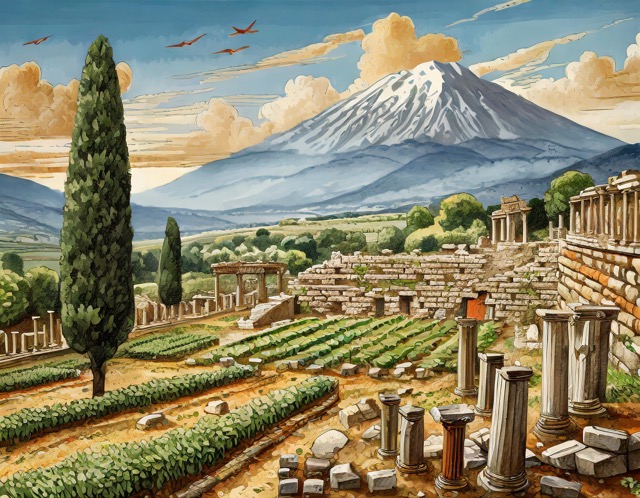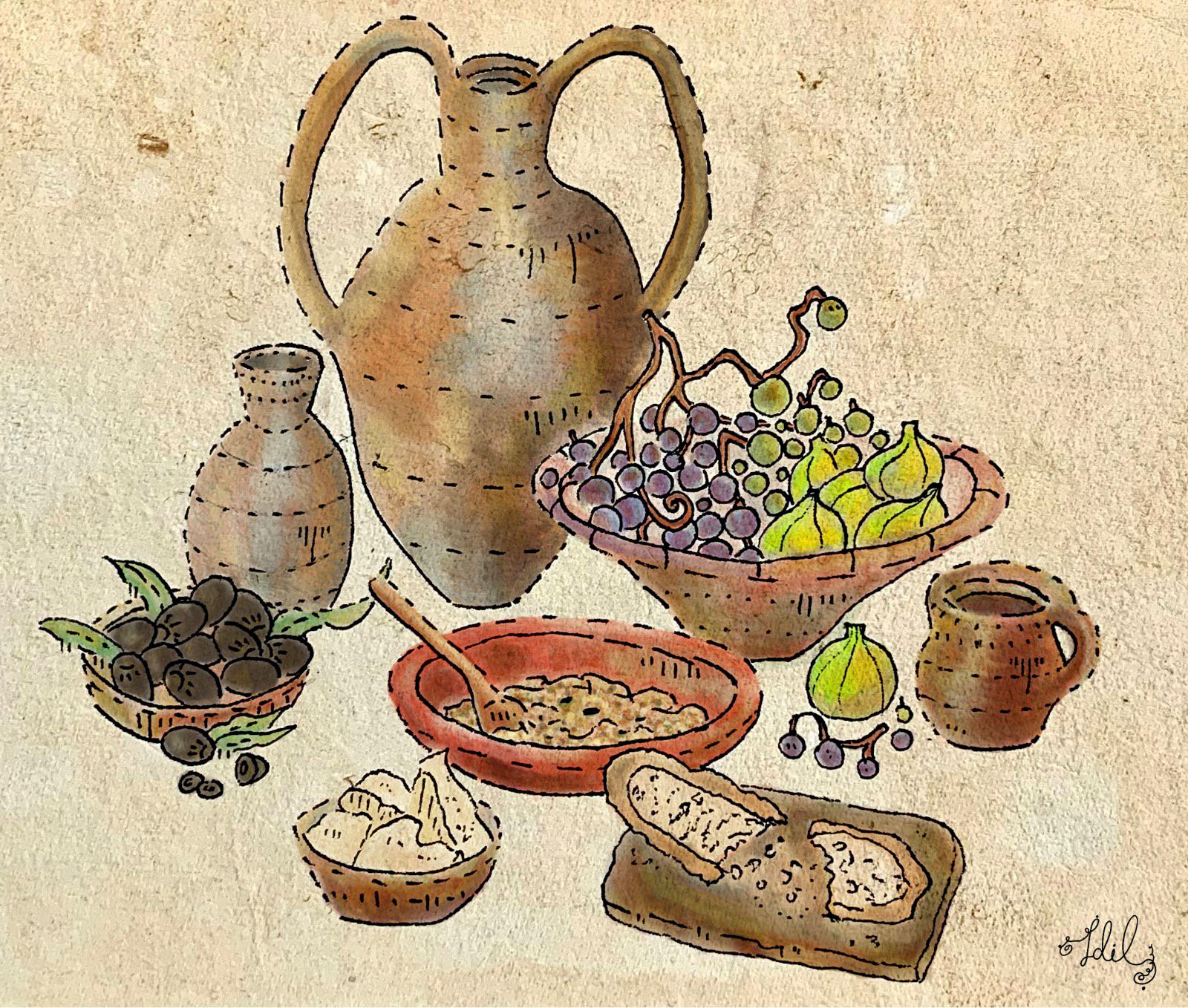- Home
- Agriculture
Agriculture

Agriculture
In ancient times, Ephesus boasted a prosperous agricultural economy, thanks to its strategic location, fertile lands, and advanced trade routes. This region served as a key center for cultivating and exporting a variety of agricultural products. The geographic location of Ephesus provided excellent conditions for agriculture, enabling the city to support a large population. Ephesus’s rich agricultural tradition included the cultivation of diverse crops such as olive trees, vineyards, and grain fields. These products were significant not only for local consumption but also for export.
Olive trees played a crucial role in Ephesus’s agriculture, producing high-quality olive oil. Olive oil was an essential part of the Roman diet and also served as a primary fuel for lamps.

Ephesus’s viticulture was renowned for producing exceptional wines, which were distributed to consumers across the empire. Additionally, the fertile plains of the region were ideal for cultivating fruits such as figs, which were often dried and exported. Figs, commonly referred to as “fiğ” in Turkish, belong to the species Vicia sativa, a legume. This plant is an annual cool-season forage crop known for its dual purpose: it serves as animal feed and plays a crucial role in agriculture by enriching the soil with nitrogen.
